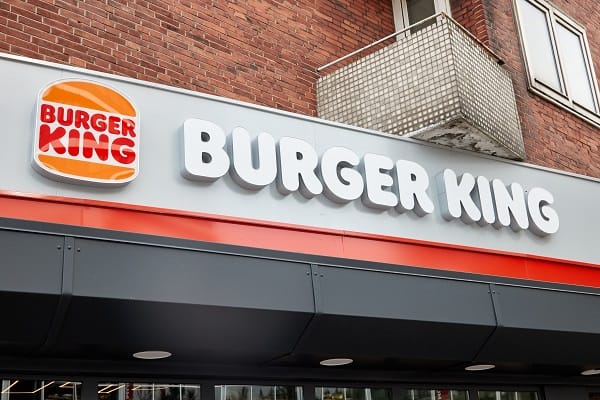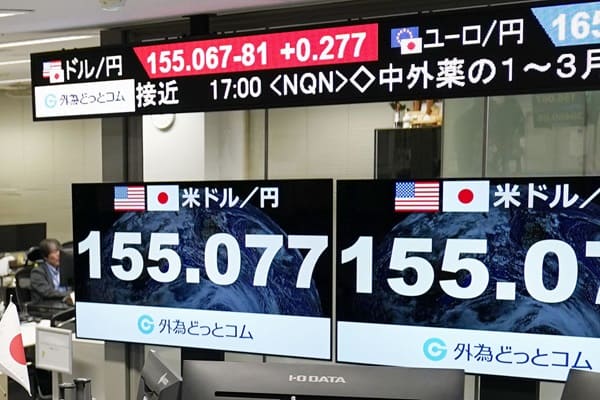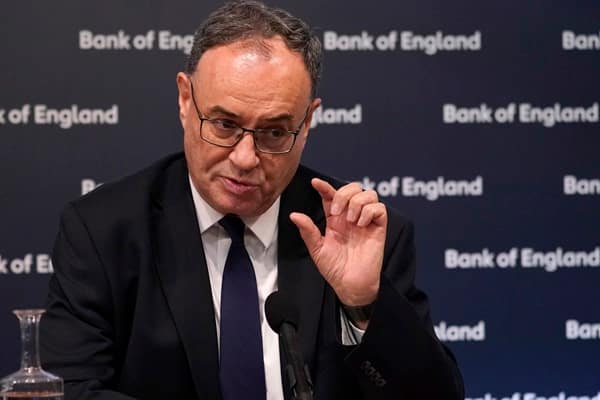Bussiness
Financial acumen and vision: How Daniel Schwartz helped 3G Capital revamp Burger King’s growth trajectory – London Business News | Londonlovesbusiness.com

Global investment firm 3G Capital is known for its highly focused, deeply involved approach to working with companies — which involves focusing on a limited number of opportunities at a time and treating each one as a potentially long-term relationship.
Founded in 2004 by a group of businessmen with experience in investment banking and private equity that included Carlos Alberto Sicupira, Marcel Herrmann Telles, Jorge Paulo Lemann and Alexandre Behring, 3G Capital’s initial years, according to Forbes, were spent fostering its investments in beer companies such as Brahma and Interbrew.
During that time frame, the firm’s work included helping to arrange the formation of multinational drink and brewing company AB InBev, which owns well-known brands such as Budweiser and Corona; 3G Capital also brought Daniel Schwartz on board as an analyst in 2005.
Schwartz, who’d only graduated from Cornell University a few years prior in 2001, was fresh off gigs at a hedge fund and financial services company Credit Suisse when he joined 3G Capital. Within three years, the firm made him a partner. Schwartz was 27 years old.
“[3G] believes in investing in young people and giving them opportunities,” he told Forbes in a 2019 interview. “I worked hard and proved that I really cared. More so than anything else, I put the business and the firm ahead of myself.”
Schwartz, speaking with Forbes in October 2024 , was responsible for the firm taking an interest in the Burger King chain.
“Burger King is an iconic brand that at the time had been around over 50 years,” Schwartz told the publication. “We couldn’t believe this business was only generating around $400 million in EBITDA with 12,000 restaurants in 100 countries.”
The QSR industry had shown resilience during economic downturns; with the ability to generate strong, durable cash flows, Burger King’s franchised business model also held appeal.
3G Capital’s leaders felt the chain would likely benefit from efficiency and other changes — and had strong enough name recognition to support further growth.
In 2010, the firm acquired Burger King for about $1 billion in equity; and Schwartz and the firm’s other leadership members went to work.
Rethinking a historic business
Although 3G Capital felt the company’s previous owners had established a significant amount of value, the firm was convinced much more was able to be mined from its brand identity and operational processes.
3G’s leadership team dedicated themselves to finding out how the company was being run and assessing where room for improvement existed.
Daniel Schwartz became Burger King’s CFO, and Behring signed on to be its executive chairman; 3G Capital also instituted a new board of directors that included several 3G Capital co-founders and partners.
“I wanted to be part of this,” he said to Forbes. “And I didn’t want to just sit in an office and get monthly reports.”
Schwartz and Behring made trips to China on an approximately monthly basis, where Burger King’s presence was significantly smaller than the scope chains like McDonald’s and Kentucky Fried Chicken had.
The firm’s work to help Burger King realize its full potential included a focus on international growth — which to that point, had only involved the addition of approximately 150 new restaurants a year — with aggressive development targets, committed capital from franchisees and shared equity.
The firm instituted a Master Franchise Joint Venture model with strong local operators, starting in Brazil, which had less than 100 locations in 2010; as of 2024, the country has more than 900 Burger King restaurants. The Master Franchise model is also being used in countries such as France, which had no Burger King locations a decade ago but has since become the company’s largest global source of business, producing more than $2 billion in system-wide sales.
Talent management and other changes were enacted to improve operations; and before long, 3G Capital began seeing results. Burger King’s North American same-store sales had grown by early 2011; in June 2012, the firm was able to take Burger King public again. The company’s stock promptly doubled in the following 18 months, according to Forbes.
By 2013, Burger King’s net restaurant growth had risen four times higher, and the burger chain had expanded into roughly 100 countries — with nearly 50% of its restaurants located outside of the U.S. The same year, Schwartz was appointed as Burger King’s CEO.
“Over the past four years, we have transformed Burger King into one of the fastest-growing and most profitable QSR businesses in the world, through successful international growth, a consistent focus on brand revitalization and strong commitment to our franchisees,” Schwartz said in a 2014 press release. “We are excited to build on this progress as we continue to expand Burger King around the world .”
Post-acquisition efforts
Due to his work with Burger King and other professional endeavors, Daniel Schwartz executive has earned numerous accolades.
Fortune named the executive to its 40 Under 40 list, which highlights individuals who are helping to shape the business realm, at age 35; Schwartz also garnered a spot on Nation’s Restaurant News’ Power List in 2018, a compilation of industry members who have set key foodservice trends.
In the years since 3G Capital’s Burger King acquisition, the firm has continued to pursue possibilities that align with its investment model — including obtaining a 75% stake in window coverings manufacturer and retailer Hunter Douglas, a key player in its industry that is headquartered in The Netherlands, in a deal that was announced in late 2021.
Members of the Sonnenberg family, which founded the window coverings company, had been looking to transition its leadership. The family retained a 25% share of Hunter Douglas.
Just a few years after beginning to work with the company, 3G Capital has been able to identify options for long-term growth in regions such as Latin America and Asia, where Hunter Douglas’ market penetration has been relatively low.
The firm’s previous investment experiences, Daniel Schwartz told Forbes, have come in handy.
“Many of the things that worked out well at Burger King, we’re now applying similarly at HD,” he said.










